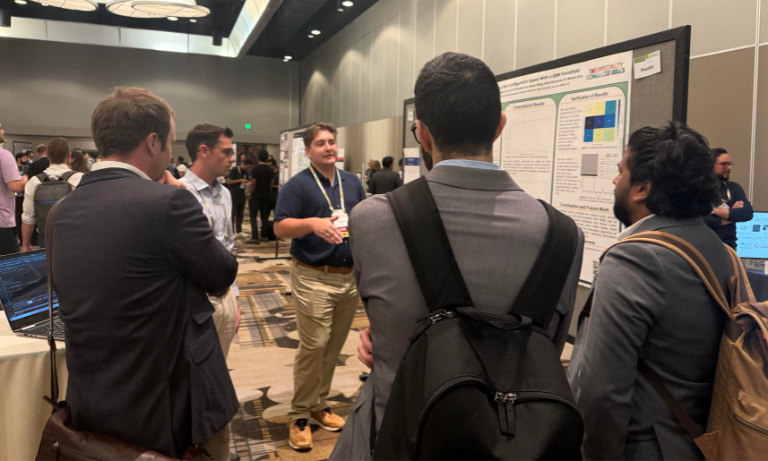With more than $430,000 in new grants, Cal Poly plans to introduce computing to more students campus-wide, which is expected to add needed diversity to computer science courses.
The National Science Foundation (NSF) awarded Cal Poly’s College of Engineering, along with other community colleges and universities, a total of $1.55 million for what will be a collaborative effort.
One grant, from the NSF program Improving Undergraduate STEM Education: Computing in Undergraduate Education (IUSE: CUE), will help develop and pilot a Computing for All course sequence at Cal Poly, the lead campus, and its partner institutions, which include UC Santa Barbara, University of Colorado at Colorado Springs and the College of Charleston. The proposal is designed for students who traditionally do not take computing coursework in college.
“The basic idea is to create a new course that would allow for broad participation in computation from across campus,” said Bruce DeBruhl, an assistant professor in Cal Poly’s Computer Science and Software Engineering Department (CSSE). “There will be a little programming, but it’s primarily not a programming class.”
CSSE faculty members Zoë Wood and Aaron Keen in computer science will lead the design of the course, which will explore how students should think about computers, with an ethical component designed by philosophy faculty member Zach Rentz.
“The idea of doing computing without considering the ramifications to society, to individuals and to the world is dangerous,” DeBruhl said, noting that biases exist in algorithms just as they do in human behavior. “And because of that it is really important in designing this course that we work with people who are experts in the field of how to make ethical decisions in a digital world.”
Increasingly more careers are using computing, DeBruhl said – from ag professionals moving toward automation and artists using digital means for art to sociological researchers who use statistical computations.
While that course will stress the foundations of computer science, the second grant, from the NSF program titled Harnessing the Data Revolution (HDR): Data Science Corps (DSC), is expected to fund a Computing for All course stressing the computational aspects of data analysis and statistical inference, said Alexander Dekhtyar, a professor in the CSSE department and co-principal investigator for both grants.
“The two proposals have a nice synergy when it comes to ‘Computing for All’ coursework development,” Dekhtyar said.
UC Santa Barbara is the lead on the HDR grant, which includes partners Santa Barbara City College and CSU-San Bernardino.
For both grants, the schools will work together and share information.
Extending computing courses to students outside of the College of Engineering is likely to add more diversity to the field, said Dekhtyar – priorities for both the CSSE department and Cal Poly.
The HDR grant also forms a Central Coast Data Science Partnership, promoting data science through academic scholarships and an upper division course. Meanwhile, Cal Poly, which already features a data science capstone, will assist UC Santa Barbara in creating one.
That grant addresses students who plan to pursue careers in data science, those who conduct research in their field and want additional data science training and newer students who have no data science background.
Jonathan Ventura (CSSE) is the primary investigator for the HDR grant, with co-PI’s Dekhtyar, Foaad Khosmood (both CSSE), Hunter Glanz and Dennis Sun (Statistics). Lubomir Stanchev (CSSE) is senior personnel.
DeBruhl is the PI for the CUE grant, with Dekhtyar, Keen, Ventura, and Wood as co-PI’s.
The NSF is a federal government agency that supports fundamental research and education in all the non-medical fields of science and engineering.


